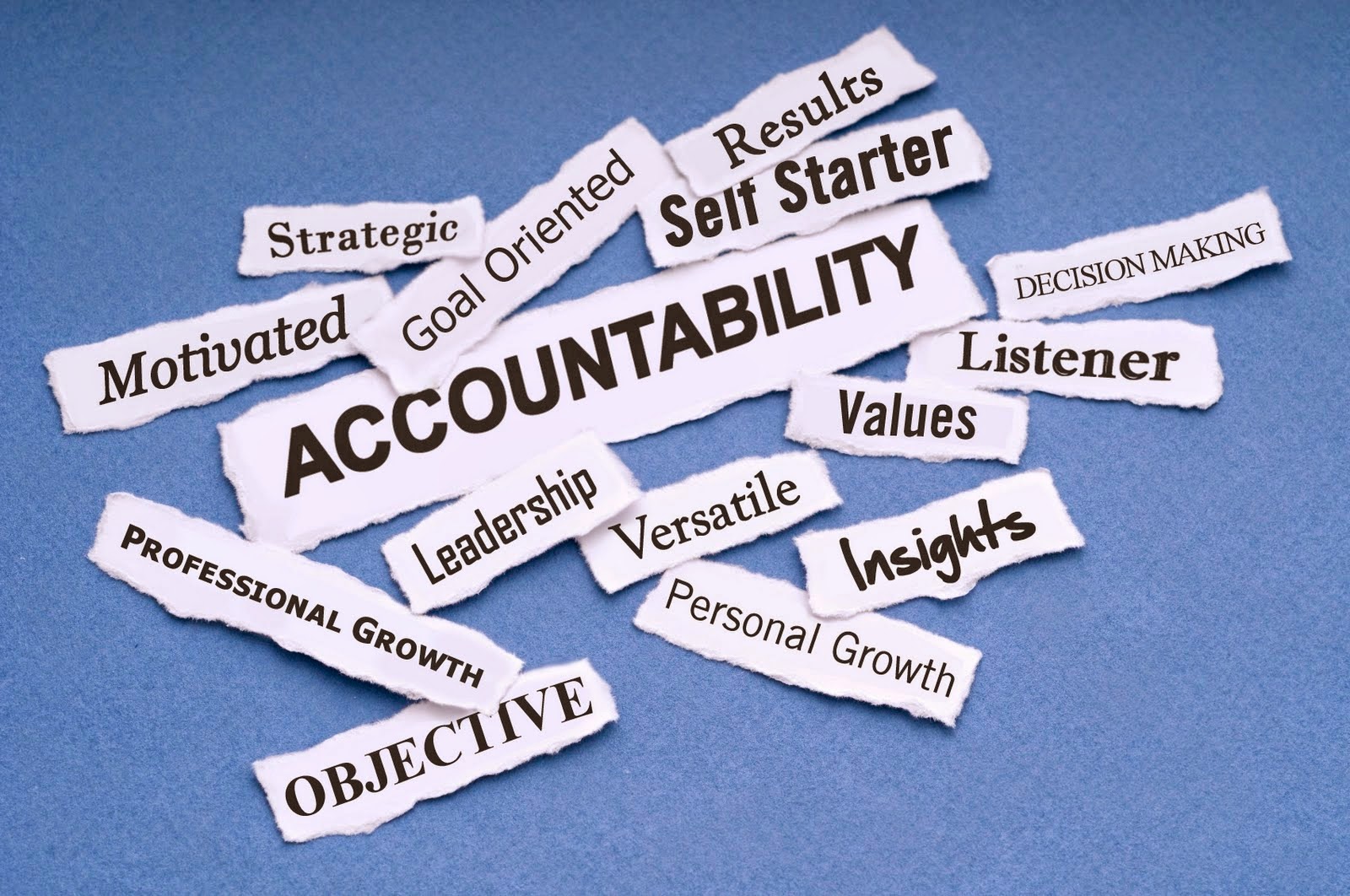Imagine you are sitting in a meeting at work. The manager leading the meeting announces, “we are going to be holding you accountable for results on this project.” What response do you feel in your gut? You might think this is great - finally, the lazy bums I’ve been carrying will be doing their fair share. More likely, you might feel that the entire team is being threatened – as usual, management will be looking for someone to blame if their plan doesn’t work. If you work in a culture of high trust, you might feel reassured. Your team makes and keeps promises to one another and this project will be no different. You can count on others to support you and they will be counting on you.
What does accountability mean anyway? When we first learned about accountability as a child, it was probably through one of three ways, religion, parenting or teams/society. Your lessons in accountability might have been threatening - as in when you die, you will be held accountable for your sins. You better not screw up, or your will pay for every mistake or bad decision you ever make. Further, you will pay the ultimate and highest price imaginable. Perhaps your parents had a system of carrots and sticks such as an allowance and privileges associated with the completion of chores and homework, and punishment associated with a failure to perform as expected. Beyond religion and parents, society teaches us what is expected and how we will be held accountable for achieving or not achieving what is expected. That society could have been made up of scenes on the playground, classrooms or sports teams. The closest I ever got to sports, was that time I was “sporting” a bad haircut. I learned that, as a child, if you have bad hair, your peers held you accountable for “less than expected” performance. Unfortunately, that playground standard is still the norm for many people, and we all have bad hair days.
I was a band geek, so on a more positive note (pun certainly intended), I learned about teamwork and accountability by only being able to achieve my goal by working with up to 200 other people in perfect harmony (pun certainly intended), to produce the desired outcome. There was an implied and voluntary promise to practice, learn our parts, listen to one another, play in the background when that was your job, and to step up and perform brightly in a solo when that was your job. Every mistake made in practice brought encouragement from the “team” who could not succeed without my success. Every mistake was letting my friends down and drove me to work harder for the goal.
This was different from any other experience in my young life because it was voluntary. I chose to be in band. When we do not care about the goal or the team, there are not enough carrots and sticks in the world to make us better.
Accountability works best when it is a voluntary, two-way promise, made between parties with a high level of trust, to produce win/win results that matter to everyone involved. When employees have no input in the plan, when they are told what to believe in and how to produce the results, when teammates are negative and uncaring, it is impossible to carrot and stick them into being accountable for your success. A culture of mediocrity will not produce more than mediocre results. Results will only change when the culture changes.
To be accountable is to be trustworthy. Like all virtues, this begins with our self. Without it, we will not be comfortable being held accountable and we will not honestly and effectively hold others accountable. If we break our promise to get up early, exercise, eat right, be patient with our kids and clean the garage, we no longer trust ourselves. We do not like or feel good about people we do not trust. If this resonates with you, do not beat yourself up. I teach a number of methods to turn this around easily and quickly. You are a good person who is doing good things. Most of us just need a tweak now and then to get back on the right track.
Involve your team, keep your promises and be strong enough to value feedback. Engage your team by actually wanting and valuing their input. Keep promises by making sure you keep promises to yourself. Solicit and value feedback – after all, if you are screwing up and no one says anything, it means they have given up on you. Only speak what you truly believe and do what you say. Most of us think we already follow this, but others might misunderstand our actions and not believe we walk the talk. In teams, others’ perceptions are critical if accountability is to be a promise, not a threat.
Subscribe to:
Post Comments (Atom)


No comments:
Post a Comment